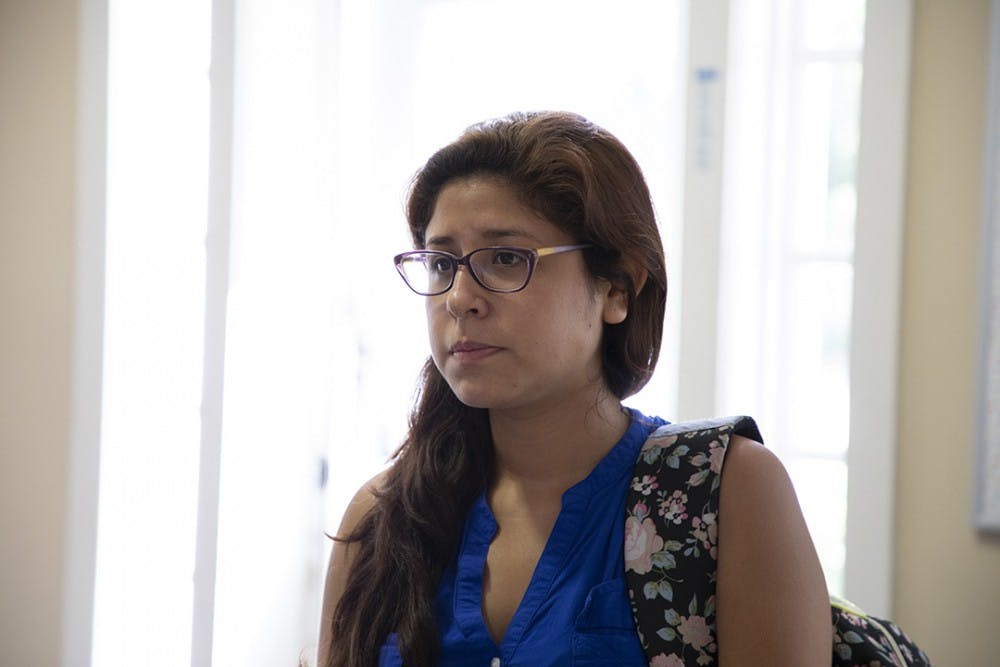Claudia Arami, an exchange student, never had to deal with thunderstorms in her hometown of Lima, Peru, but during her semester at USC she has experienced much more than simple South Carolina rain storms.
“When it starts raining here it really rains but you can get wet, but in Lima, that is my city I live, the rain’s almost nothing," said Arami, a fourth-year management student. “I’ve never seen thunder really, nothing in all my life. The first times I recorded and I sent to my family.”
The upcoming Family Weekend is an opportunity for students to spend time with their families and share USC’s traditions, but the 1,795 international students enrolled at USC will likely not see their families for an extended period of time.
International students at USC may be part of a study abroad program or may complete their entire program in Columbia. Fourth-year mass communications student Larisa Meza is excited to take her knowledge back to Mexico after her semester abroad.
“We have journalism, but in another city so here are some classes that I can take back home that I think that it would be interesting to take,” Meza said.
Many members of USC's international community call the International House at Maxcy home. The program allows international students to connect with other students far from home while also connecting with American students who can help ease their transition to America and aid in language skills.
The Thornwell Language Annex is another popular community, where a specific language is spoken in a specific area of the residence hall. International students become the teachers as they share their language and culture with the other students.
“When I started looking about going to study abroad one semester, I really want like a country that the native language is English because I want to improve my English ... after that I started searching like the universities that I can go here in the United States,” Arami said.
Arami said she's thankful to live in a residence hall such as Maxcy because of the community they develop. Different programs such as Buddies Beyond Borders and the International Student Association help international students integrate into the USC community.
“When my friends go to other countries I think that they need more friends and family but it's because they are living alone, but here that I live like in a residence with more people,” Arami said.
Meza went from traveling across the country for a college education to traveling across the continent. She said she doesn't struggle with homesickness because she already spent time away from her family for school.
“I am actually from the middle of the country of Mexico, but I study in another city so I’ve been living like away from my family for three years now,” Meza said. “I think for them it’s the same that if I am there or if I am here because I’m still not home.”
For some international students, adjusting to certain parts of the culture of an American university took some time.
“For me, it was really about being punctual," Arami said. “If the classes start at 8 a.m. it really starts at 8 a.m., and in my country's the ten first minutes everyone is coming. Here, if I am one minute late I really feel that I am late.”
Despite a variety of options, the transition to American food was also a crucial part of the transition to American culture.
“I feel like all the restaurants here, there’s things like fast food and things like that,” Meza said. “I always cook or in my house or in my apartment I sometimes cook or my sister so I’m not used to this kind of fast food.”
Arami has taken advantage of missing the food she ate in Peru to learn new cooking skills during her first month at USC. She still misses the spices and flavors of her home country, but she is looking forward to experimenting with new Peruvian dishes.
“I never cook in my country, maybe just one or two times in all my life,” Arami said. “Here I am learning how to cook because I was really also tired of the same meat or chicken or salad. I was just eating that or fast food. Last week was the first time that I made Peruvian food.”
International students may be away from their country, culture and family for a semester or two, but the ease of communication in 2018 keeps them connected to their homes while immersing themselves in American culture.
“I’m always talking through the phone with them maybe two or three times per week by calling,” Arami said. “But just sending pictures or video through WhatsApp maybe almost all day if I see something interesting while I’m walking or something new for us.”

